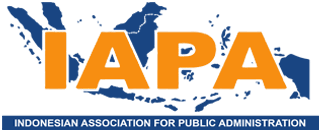WASTE MANAGEMENT STRATEGY BASED ON THE PERSPECTIVE OF SAPTA PESONA (CLEANLINESS) TO INCREASE COMMUNITY INTEREST IN CIMANDE VILLAGE
DOI:
https://doi.org/10.30997/jsh.v12i1.4165Abstract
The waste management strategy based on the Sapta Pesona (Cleanliness) perspective is one way to provide knowledge to the community that their village where they live is a tourist area that must be clean and free of waste. All tourists will visit the area safe, orderly, clean, cool, beautiful, friendly, and memorable. The research method used is qualitative and quantitative methods. SWOT analysis techniques to improve waste management strategies based on the Santa Persona (Cleanliness) perspective. Data collection method: interviews community leaders, tourist awareness group, and youth organization, questionnaires, observation, and documentation. Qualitative data research: the form of tables and diagrams from the results of the questionnaire and the SWOT analysis. The results of the questionnaire research strongly agree to implement the 3R (reduce-reuse-recycle) program, want to have their own trash cans, and want to throw garbage in their own trash cans carry out environmental cleanliness with mutual cooperation every month. The IFAS analysis was obtained with a value of 1.53, while the EFAS analysis, it was obtained a value of 0.96 then it was brought together in the SWOT analysis quadrant and the results showed that the quadrant 1 area supported aggressive strategies. This means that the local government of Cimande Tourism Village is carried out a progressive strategy by utilizing the internal strength of Cimande Tourism Village to benefit from external opportunities (opportunities) to support waste management problems so that there are high awareness and interest of the Cimande community about environmental cleanliness to reached Cimande clean.
Keywords: Waste Management, Sapta Pesona, Cleanliness, Community Interest, Cimande Village
References
Ananti, Y., & Ernawati, E. (2017). Perilaku Seks Pranikah pada Remaja Sebagai Dampak Konsumsi Minuman Beralkohol. Prosiding Seminar Nasional IKAKESMADA"Peran Tenaga Kesehatan Dalam Pelaksanaan SDGs", 165–170.
BPS. (2020). Kota Tasikmalaya 2020. In BPS Kota Tasikmalaya/BPS-Statistics of Tasikmalaya Municipality (Vol. 5, Issue 1, pp. 1–8). https://tasikmalayakota.bps.go.id/publication/2020/02/28/c5a5ac8299cf2672cc421fda/kota-tasikmalaya-dalam-angka-2020--penyediaan-data-untuk-perencanaan-pembangunan.html
Fitriani, O., Handayani, S., & Asiah, N. (2017). Determinan Penyalahgunaan Narkoba pada Remaja di SMAN 24 Jakarta. ARKESMAS (Arsip Kesehatan Masyarakat), 2(1), 135–143. https://doi.org/10.22236/arkesmas.v2i1.516
Harbia, Multazam, M., & Asrina, A. (2018). Dampak Penyalahgunaan Narkotika , Psikotropika dan Zat Adiktif lainnya ( NAPZA ) terhadap Perilaku Seks Pranikah. Window of Health : Jurnal Kesehatan, 1(3), 204–216.
Hariyanto, B. P. (2018). Pencegahan Dan Pemberantasan Peredaran Narkoba Di Indonesia. Jurnal Daulat Hukum, 1(1), 201–210. https://doi.org/http://dx.doi.org/10.30659/jdh.v1i1.2634
Hasibuan, A. A. (2017). Narkoba dan Penanggulangannya. Jurnal Ilmiah Bidang Pendidikan, 11(1), 33–44. http://jurnal.uinbanten.ac.id/index.php/studiadidaktika/article/view/517/445
Hawi, A. (2018). Remaja Pecandu Narkoba: Studi Tentang Rehabilitasi Integratif Di Panti Rehabilitasi Narkoba Pondok Pesantren Ar-Rahman Palembang. Tadrib: Jurnal Pendidikan Agama Islam, 4(1), 99–119. https://doi.org/10.19109/tadrib.v4i1.1958
Ihsan. (2017). Kecenderungan Global Dalam Proses Pembelajaran Pendidikan Pancasila Dan Kewarganegaraan Di Sekolah. Jurnal Pancasila Dan Kewarganegaraan, 2(2), 49–58. https://doi.org/10.24269/v2.n2.2017.49-58
Melati, D. P. (2017). Pengaruh Penyalahgunaan Narkotika Terhadap Perilaku Kriminal Bagi Remaja. Darmajaya, 1, 60–74. https://jurnal.darmajaya.ac.id/index.php/PSND/article/view/859/529
Mudzakkir, A. (2017). Konservatisme Islam Dan Intoleransi Keagamaan Di Tasikmalaya. Harmoni, 16(1), 57–74. https://doi.org/10.32488/harmoni.v16i1.56
Nazir, M. (2013). Metode Penelitian (R. Sikumbang (ed.)). Ghalia Indonesia.
Purnomowardani, A. D., & Koentjoro. (2000). Penyingkapan Diri, Perilaku Seksual, dan Penyalahgunaan Narkoba. Jurnal Psikologi, 1, 60–72.
Rahmadona, E., & Agustin, H. (2014). Faktor Yang Berhubungan Dengan Penyalahgunaan Narkoba Di Rsj Prof. Hb. Sa’Anin. Jurnal Kesehatan Masyarakat Andalas, 8(2), 60. https://doi.org/10.24893/jkma.8.2.60-66.2014
Refeiater, U. H. (2011). Penyalahgunaan Narkoba. Jurnal Health & Sport, 2(1), 83–88. https://ejurnal.ung.ac.id/index.php/JHS/article/view/65/60
Rosyana, K., Kusnanto, & Wahyuni, E. D. (2012). Analisis Faktor Yang berhubungan dengan Perilaku Seks Bebas Pada Remaja di SMK DR. Soetomo Surabaya Teori Perilaku WHO. Universitas Airlangga, 10(1).
Satori, A., & Nurohman, T. (2018). Pergeseran Orientasi dan Ekspresi Elit Pesantren di Kota Tasikmalaya. JSW: Jurnal Sosiologi Walisongo, 2(1), 17. https://doi.org/10.21580/jsw.2018.2.1.2478
Setyawan, S. A., Gustaf, M. A. M., Pambudi, E. D., Fatkhurrozi, M., & Anwar, S. (2019). Pergaulan Bebas di Kalangan Mahasiswa dalam Tinjauan Kriminologi dan Hukum Student Free Sex in the Perspective of Criminology and Law. 5, 163–186.
Sitorus, R. J. (2016). Penggunaan Narkotika Mendukung Perilaku - Perilaku Beresiko. Jurnal Ilmu Kesehatan Masyarakat, 7(1), 1–5. http://www.jikm.unsri.ac.id/index.php/jikm/article/view/412
Sitorus, R. J., & Natalia, M. (2015). Perilaku seksual beresiko penggunaan narkoba risky sexual behavior of narcotic users. Kesmas: Jurnal Kesehatan Masyarakat Nasional, 9(4), 348–352.
Downloads
Published
How to Cite
Issue
Section
License
Copyright (c) 2021 Copyright © 2018 OJS Universitas Djuanda All rights reserved

This work is licensed under a Creative Commons Attribution-ShareAlike 4.0 International License.
Authors submitting manuscripts must understand and agree to copyright the manuscript of the article was transferred to OJS Djuanda University. All rights reserved. The copyright release statement for the Journal of Social Humanities is set out in the Agreement Transfer of Copyright. This work is licensed under Creative Commons Attribution-ShareAlike (CC BY-SA) version 4.0 where Author and Readers can copy and redistribute material in any media or format , as well as mixing, modifying and building materials for any purpose, but they must provide appropriate credit (citing articles or content), provides a link to the license, and indicates when changes have been made. If you mix, modify, or develop, the materials you have to distribute your contributions are under the same license as the originals.
















